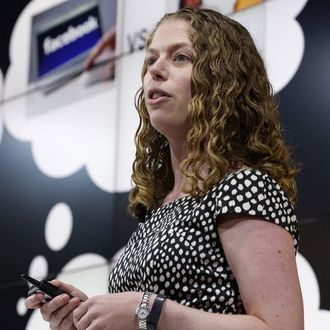
Behavioral economics is huge right now. The field — basically, the science of the subtle, oftentimes irrational ways people are influenced in their decision-making — has applications everywhere, from nutrition to anti-poverty policy, so it’s probably no surprise that a young generation of researchers has embraced it enthusiastically.
One of those young researchers is Katherine Milkman, an associate professor of operations, information, and decisions at the University of Pennsylvania’s Wharton School, and someone whose work pops up on Science of Us fairly frequently. Princeton Alumni Weekly has written a solid profile of her (she graduated from there in 2004), and it’s worth reading.
Milkman’s research focuses a lot on how to better balance our wants and our shoulds, and one of the most useful ideas in this profile of her comes early on:
In 2014, Milkman published a study of a self-control strategy she calls “temptation bundling.” The idea is to link a want (in the study, listening to audio versions of page-turners such as the Hunger Games books) with a popular should (working out at the campus fitness center). If getting on a treadmill were the only way to hear the next chapter in the novel, would you be more likely to get off the couch and go to the gym?
The results were promising: Participants who had access to the audiobooks only at the gym made 51 percent more gym visits than those in the control group. (Another cohort that was encouraged, but not required, to restrict their listening to workout times had 29 percent more visits than the control group.)
In theory, this approach could be used to tie together just about any temptation and any sort of behavior you’re trying to reinforce: studying and video games, for example, or going out with friends and calling your mom. Your success will depend on a lot of factors, of course — a big one is probably to what extent you put actual barriers between yourself and the temptation, given how risky it can be to rely on willpower alone.
The other best part of this profile has to do with the time when Milkman ghosted on Paul Krugman:
Though Milkman works in the space between economics and psychology, as an undergraduate at Princeton, she did not major in either one. She had envisioned economics as a promising path, but her first course, introductory microeconomics with future Nobel laureate Paul Krugman, proved to be a rocky start. “The assumptions that the field seemed to rest on were all, to my mind, totally wrong — that people are perfect, optimizing machines,” she says.
No disrespect to Krugman, of course, but if you’re a fan of psychology and what the field has revealed about the limits of “rational” models of human behavior, it’s hard not to smile at the prospect of a young behavioral-scientist-to-be saying “Thanks, but no thanks” to a Nobel Prize winner.




